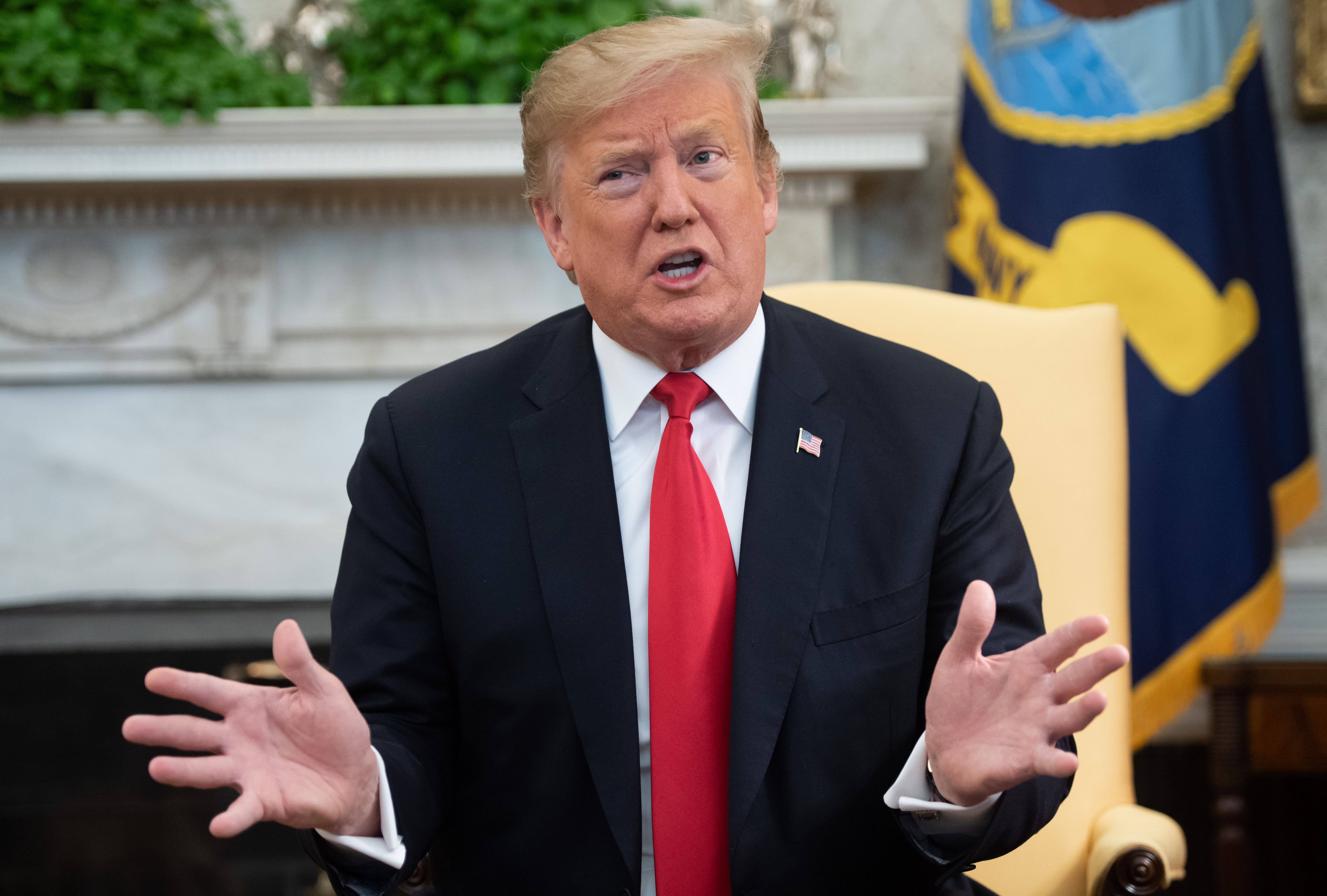
U.S. President Donald Trump speaks in the Oval Office of the White House in Washington, DC, March 27, 2019.
Saul Loeb | AFP | Getty Images
U.S. President Donald Trump's surprising move to impose more tariffs on China is a serious misreading of China's pressure points, according to Eurasia Group analysts.
The latest escalation signaled a return to the way Trump negotiated with China — by trying to build more leverage over Beijing amid ongoing talks — before both sides agreed to a ceasefire in late June, Michael Hirson, Paul Triolo and Jeffrey Wright wrote in a Thursday note.
"The threat is a serious gamble for Trump," they said. "It likely signals that he would prefer to reach a deal on his terms before the 2020 election, and is willing to use the tools at his disposal to build pressure on China to that end."
Trump said Thursday that the U.S. will put 10% tariffs on another $300 billion worth of Chinese goods starting Sept. 1. In a series of tweets, the president complained that China did not buy "large quantities" of agricultural products from the U.S. like it had agreed to do, and that it did not stop the sale of Fentanyl, a synthetic opioid, to the United States.
China, however, insisted millions of tons of U.S. soybeans have been shipped to the country since July 19, and many companies have made orders for American soybeans, cotton, pork and sorghum, Chinese state media Xinhua said.
The announcement came just a day after both sides wrapped up a round of trade talks in Shanghai, with plans to continue the negotiations in Washington in September.
'Extremely embarrassing' for China to concede
The Eurasia Group analysts said it is possible that Thursday's tariff threat is meant to spur China into buying more American agricultural products but, they added, Beijing is unlikely to respond the way Trump hopes. It would be "extremely embarrassing for China to step up imports from the U.S. under the threat of blackmail," they wrote.
Tapas Strickland, director of economics and markets at National Australia Bank, also said that it was impossible for China to concede without losing face.
"It goes against China's core demands of sincerity and the removal of existing tariffs," he wrote in a Friday morning note, adding it is possible that Beijing "will retaliate with an intensification of non-tariff barriers, as well as further Chinese stimulus to ward off headwinds."
A senior Chinese diplomat, Wang Yi, said on Friday that the U.S. move was not the correct or constructive way to resolve the trade dispute, Reuters reported.
Some of the core complaints from the U.S. in its dispute with China include companies being forced to handover technologies to Chinese parties in exchange for equal market access, intellectual property violations, a lack of fair market access and Beijing's system of subsidies to domestic businesses.
Trump's gambit is unlikely to work as far as those issues are concerned, the Eurasia Group analysts said. For his part, Chinese President Xi Jinping "cannot afford the perception that he has been blackmailed into a deal by Trump, and these threats — coming the day after talks concluded in Shanghai — likely compound Chinese leaders' skepticism that Trump will ever be a viable partner for a trade deal."
The Huawei issue
If China does not step up its agricultural purchases from the U.S., it could complicate matters around Huawei.
Since first placing the Chinese tech giant on the Bureau of Industry and Security Entity List in May, which effectively halted its ability to do business with American firms, Washington has since softened its stance. It agreed to give timely licensing decisions to U.S. companies that would allow them to sell to the telecommunications juggernaut.
Beijing, for its part, wants the U.S. to fully lift restrictions on Huawei, but many U.S. lawmakers still strongly oppose any relief for the company, seeing it as a major risk to national security.
"Unless China restarts agricultural purchases soon, (Trump) will have little to show for a move that is deeply unpopular with China hawks," Eurasia Group analysts said, referring to some American lawmakers. "If Trump backs away from promises to issue licenses to Huawei's U.S. suppliers, the odds of negotiations breaking down and tariffs being imposed rises."
2019-08-02 05:48:04Z
Bagikan Berita Ini














0 Response to "Trump's new tariffs show he's reading China all wrong, risk consultancy warns - CNBC"
Post a Comment